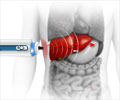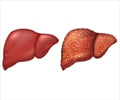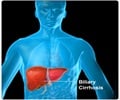Liver disease can overtake heart disease to become the commonest cause of death. Therefore, screening for cirrhosis in high risk patients is necessary.

‘Managing risk factors for common liver diseases like alcohol consumption and obesity can prrotect patients from the risk of cirrhosis.’





Yet technologies to identify early liver disease exist, they say, and are supported by the National Institute for Health and Care Excellence (NICE).NICE recommends that men and women drinking alcohol at potentially harmful levels more than 50 and 35 units a week, respectively be offered a test (transient elastography) to exclude cirrhosis. This equates to about 2.25 million people in England and Wales.
They point out that few GPs currently have access to this test, "so it is not going to happen overnight." However, because the lifetime cost of treating liver disease is between £50,000 and £120,000, "this approach is likely to be cost effective," they write.
"We will need properly controlled trials, and these studies are in preparation," they say. "However, the burden of liver disease is such that doctors cannot simply sit in their ivory towers waiting for patients with liver disease to come and find them."
But other experts argue that despite recent recommendations from NICE, "insufficient evidence supports a screening programme for cirrhosis."
Advertisement
Yet the test proposed to screen for cirrhosis has been shown to perform poorly in people suspected to have alcohol related liver disease, leading to many healthy people being incorrectly labelled as having cirrhosis and subject to further medical intervention, which comes with risk of physical and mental harm.
Advertisement
As such, they believe that implementation of screening for cirrhosis "would inevitably lead to disinvestment in other, more effective interventions, risking the overall health of the population."
Instead, they say resources should be targeted at managing risk factors for common liver diseases, such as alcohol consumption and obesity, as well as investing in well designed trials that evaluate the clinical and cost effectiveness of screening strategies.
Source-Eurekalert













